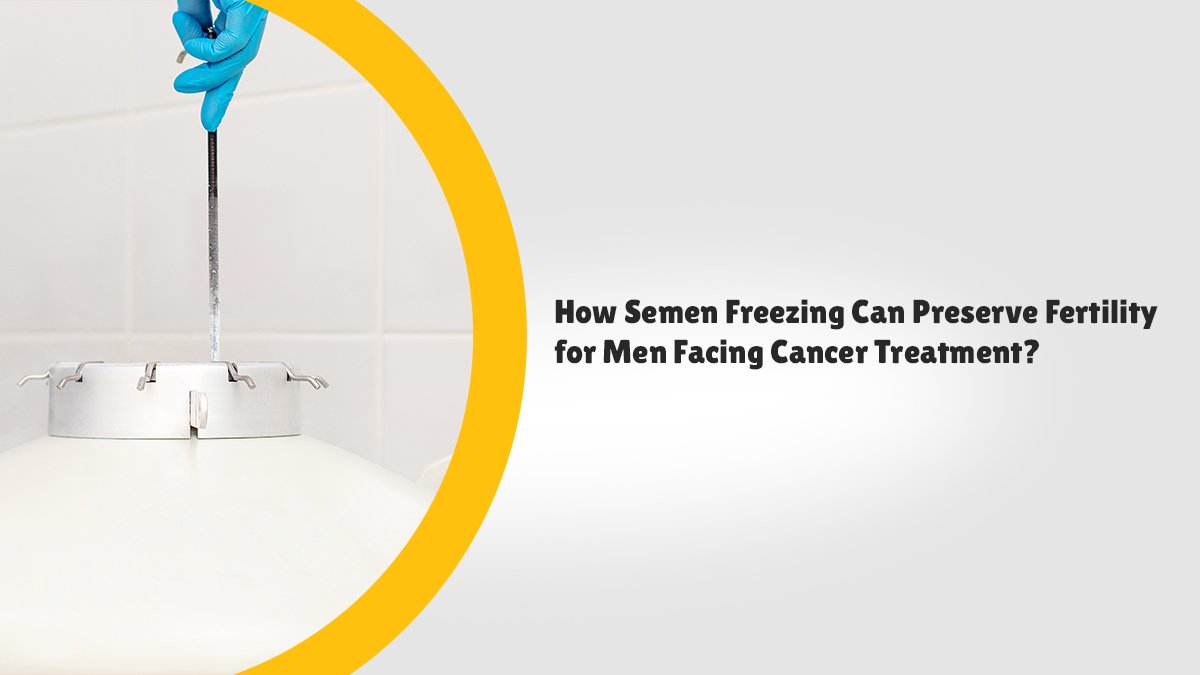Can low oxygen levels affect sperm quality and reproductive health? Reproductive health is influenced by numerous factors, and oxygen levels in the environment and within the body play a pivotal role in sperm quality. While the effects of oxygen deprivation on general health are well-documented, its impact on male fertility is gaining attention, particularly in the realm of advanced reproductive technologies like semen-freezing treatments.
Semen freezing, also known as sperm cryopreservation, has become a cornerstone of fertility preservation. Lets delves into the connection between oxygen levels and sperm quality, while also exploring how semen freezing technology addresses such challenges, ensuring better outcomes for individuals and couples seeking to preserve their fertility.
The Role of Oxygen Levels in Sperm Quality
Oxygen is critical for cellular function, including sperm production and motility. However, the relationship between oxygen levels and sperm health is complex.
Oxidative Stress
When oxygen levels are too high, it can lead to oxidative stress, a condition where excessive reactive oxygen species (ROS) damage sperm cells. This can impair sperm motility, DNA integrity, and overall viability, thereby reducing the chances of successful conception.
Hypoxia (Low Oxygen Levels)
Conversely, insufficient oxygen levels—known as hypoxia—can also have adverse effects. Prolonged exposure to low-oxygen environments can disrupt the production of healthy sperm (spermatogenesis) and reduce sperm energy, impairing their ability to swim and fertilize an egg.
Environmental and Lifestyle Factors
Low oxygen levels can stem from environmental pollution, high altitudes, smoking, and sedentary lifestyles, all of which are known contributors to declining sperm quality. This is where advanced fertility solutions, such as semen freezing treatment, come into play.
What is Semen Freezing Treatment?
Semen freezing is the process of collecting, freezing, and storing sperm at extremely low temperatures (typically -196°C in liquid nitrogen) for future use. This technology has revolutionized fertility preservation, offering hope to men facing potential fertility risks due to medical, environmental, or lifestyle factors.
Semen Freezing Benefits: Why Does It Matter?
Semen freezing treatment offers a range of benefits for men looking to secure their reproductive potential:
Protection Against Environmental Damage
Freezing sperm at optimal conditions eliminates the impact of low oxygen levels and other environmental stressors, preserving sperm quality over time.
Medical Applications
For men undergoing medical treatments such as chemotherapy or radiation, which can harm sperm production, semen freezing ensures they can preserve their fertility before starting treatment.
Fertility Preservation for Delayed Parenthood
Many men choose to freeze their sperm as they delay parenthood for career or personal reasons. This option provides a safeguard, especially for individuals concerned about declining sperm quality with age or exposure to environmental pollutants.
Support for IVF and ART
Frozen sperm is widely used in assisted reproductive technologies (ART) such as in-vitro fertilization (IVF). The controlled freezing process ensures that viable sperm is available when needed, without compromising its functionality.
How Semen Freezing Technology Addresses Oxygen-Related Concerns?
The success of semen freezing lies in the advanced technology and protocols that minimize cellular damage during the freezing and thawing process.
Cryoprotectants
Specialized cryoprotectants are used to protect sperm cells from damage caused by ice crystal formation during freezing. This ensures that the structural and functional integrity of the sperm is preserved.
Controlled Freezing and Thawing
Modern semen freezing technology employs slow-freezing and rapid-thawing techniques, which minimize oxidative stress and prevent hypoxia-induced damage.
Oxygen-Free Storage
Once frozen, sperm is stored in a completely oxygen-free environment within liquid nitrogen tanks. This eliminates the risk of oxygen-related damage during long-term storage.
Advanced Monitoring Systems
State-of-the-art storage facilities include monitoring systems that ensure stable conditions, providing optimal care for the frozen sperm until it is needed.
Conclusion
Low oxygen levels and oxidative stress are significant factors influencing sperm quality and overall reproductive health. Semen freezing treatment provides an effective solution to these challenges, ensuring that sperm remains viable and functional for future use. With ongoing advancements in semen-freezing technology, men now have the means to preserve their fertility despite environmental, medical, or lifestyle risks.
Dr. Sonu Taxak, a distinguished fertility specialist at YellowIVF, has been instrumental in utilizing such innovations to deliver personalized, cutting-edge fertility solutions.




